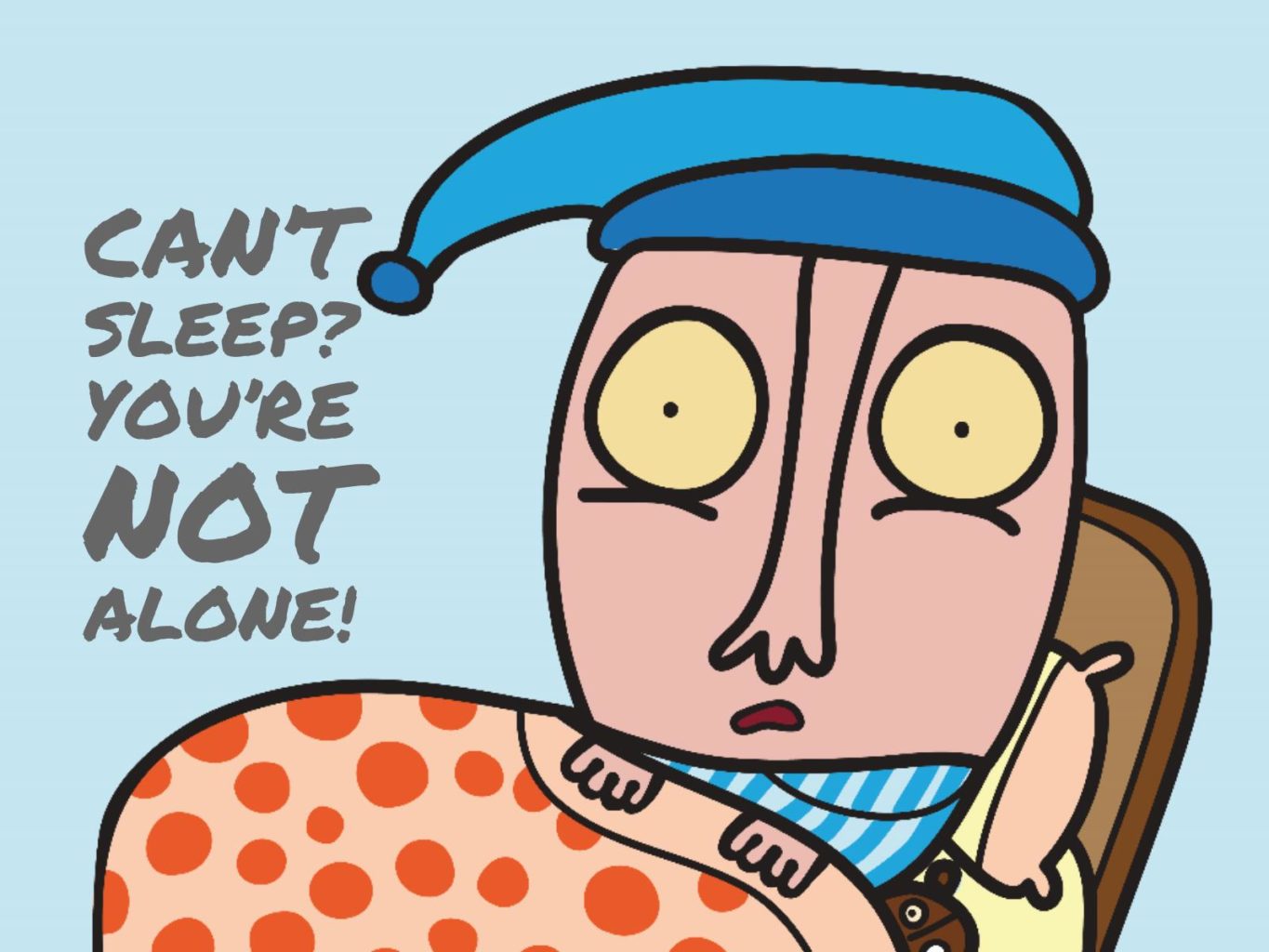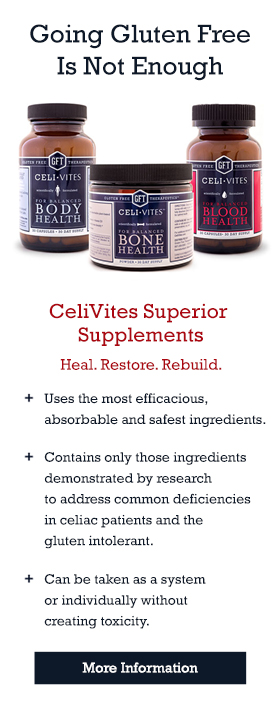
Celiac patients often experience problems sleeping
We all take it for granted. After a long day, it’s time to close your eyes and gently nod off into the land of zzzzs. However, this well-deserved rest may not be as easy as it seems for patients suffering from celiac disease. Making it common for these patients to complain about absolute exhaustion combined with an inability to have a good night sleep. The worrying thing is that these problems may persist even after diagnosis and a gluten-free diet. Despite this connection between celiac disease and poor sleep being well established, researchers are conducting studies trying to understand the mechanism behind it and ways to treat it are actually very scarce.
How is sleep affected?
For some patients with celiac disease, it can be extremely difficult to go to sleep when they first go to bed or fall back asleep if they wake up in the middle of the night. In addition, some complain of sleep disturbances, like nightmares or restless leg syndrome, and often resort to sleeping tablets. All this can have significant consequences during the following day with feelings of tiredness and irritability. Productivity and quality of life can be affected.
Interestingly, even patients with no obvious gastrointestinal symptoms can suffer from lack of sleep, and some researchers have suggested using sleep disturbances as a possible indicator to test for celiac disease.
Why does it affect celiac disease patients?
The short answer is that nobody really knows. What researchers do know is that once patients enter a vicious circle, it can be extremely difficult to get out: symptoms like abdominal bloating or pain can disturb sleep, which in turn will only aggravate any gastrointestinal symptoms and increase of risk of disease flares. To make things worse, celiac disease is also associated with psychological disorders, like anxiety and depression. These can often lead to sleep problems, which in turn can exacerbate symptoms associated with celiac disease.
For a long time, it was believed that nutritional deficiencies caused by poor absorption were at the root of the problem, but a recent study noticed that patients continue to suffer from poor sleep even after being on a gluten-free diet for a few years. A more recent suggestion, but still nothing more than speculation at this stage, involves a weakened anti-inflammatory response as a consequence of poor sleep. However, more studies are needed to assess the real mechanism behind poor sleep and celiac disease.
Does it get better with a gluten free diet?
Unfortunately, a gluten-free diet does not seem to eliminate the risk of sleepless nights completely, but it does make it a little bit easier to get a rest. For those on a gluten-free diet, problems with sleep may come back after accidental cross-contamination and gluten consumption. In this case, what can you do to ensure a good night’s sleep?
Tips for getting a good night’s sleep
1. Goes without saying that you always need to stick to your gluten-free diet. If you notice you’re having trouble sleeping, check any new products you’ve tried recently. If you’re new to a gluten-free diet and still get sleepless nights, you may need to drop all processed foods.
2. Be aware of opportunities for gluten cross contamination. Eating in an unfamiliar place, such a friend’s home or a restaurant.
3. Create a relaxing atmosphere before going to sleep. Why not leave the mobile phone/tablet/laptop in the living room and ditch the TV in the bedroom? Bright lights keep your brain active, and it will be harder to get to sleep.
4. Always stick to a routine, and get out of bed at the same time every morning (even weekends!) The goal is to stay consistent with the times you go to bed and get up.
5. For caffeine addicts, the advice is to cut down on coffee, especially in the afternoon.
And talk to your healthcare provider. Sleep disorders are commonly associated with cases of anxiety and stress, and a correct diagnosis and treatment may just help you to get back to sleeping like a baby!
This original article is made possible by Gluten Free Therapeutics. Our mission is to educate, inform, and provide the most effective nutritional products possible to allow those with celiac disease and serious gluten intolerances to heal their bodies. CeliVites complete line of superior gluten free supplements includesmultivitamin supplements, iron supplements, and calcium supplements for people living with celiac disease. All CeliVites products are designed to help you heal, restore and rebuild your body, because going gluten-free isn’t enough!
Comments ()
















I have been lucky in that the only sleep disturbance I ever had was due to the constant itch of Dermatitis Herpetiformis. Before I was diagnosed, I slept like I was drugged, sometimes for entire weekends,only waking to eat and visit the bathroom.GF for eight years now , I sleep better than most 58 year old women do.
L- Glutamine and bone broth in the morning and 5 grams of glycine at night. This has been the only thing that helps. I’ll still wake through the night, but I feel more rested when I get out of bed. There is really good double blind research on how glycine promotes stage 3 & 4 sleep, which are the recuperative stages. Search “glycine and sleep” on google scholar for references.
I have celiac and have been gluten free 19 years, and have had chronic insomnia all those years. I’ve learned by trial & error that I’m very sensitive to certain foods, especially anti-oxidants. For example if I get more than about 25% of the RDA of vitamin E I can’t sleep. Also high tannin tea (rich black) and red wine. And more. I suspect I’m also deficient in some substances good sleepers and non-celiacs normally get. I’ll check out glycine and any other possibilities!
My partner has celiac disease and hypothyroidism and suffers from a lack of sleep. She often gets no more than an hour of sleep a night and frequently no more than three or four hours per night. She takes thyroxin tablets and has been on a gluten-free diet for 3 years now. Once gluten free, I hear that it can take as much as 2 or 3 years for the villi in the lower intestine to repair and get back to normal. I also hear that it is the lower intestine that absorbs Vitamin B12, which is somehow part of the thyroxin treatment. This suggests to me that her fatigue could be being caused the damaged villi not absorbing enough B12 and iron, seen as low in her blood tests. Is this just adding 2+2 to get 5 or could this be a valid reason for the tiredness? More importantly the lack of sleep?
It is not believed that damaged villi is the cause of it because people that’s been GF for years still report having insomnia.
hello. i am facing a lot of issues.if anyone can help me i can send my CT.scan report and my TTG level is also high
I don’t know if I’m celiac, stated with campylarbacter food poisoning in June, my sleep just vanished only getting about 10 – 20 mins a night, loose stools. I have developed awful dull head after about 6 weeks and sweating in the day time and at night. Heart palpitations come on regularly.
I’ve lost loads of weight. My muscles are now wasting in legs , and buttocks. Knees have just gone to loose skin and hurt
and crack. I’m wobbly on my legs. I have pins and needles in legs and buttocks and stiffness and burning. and legs can just feel hot . Feet get old as do hands. Back is numb at the base of my spine I’m absolutely exhausted as it’s 5 months on. My cheeks are sunken in with weight loss and my hair is coming out. I have to go for bowel movement about 5 times a day. Sometimes it’s loose some times it constipated. I’ve had blood tests for all sorts, mri scan , chest X-ray. I’m having nerve conduction test in a few day. Doctors dont know what it is . Could it be celiac , suddenly brought on by campylarbacter?